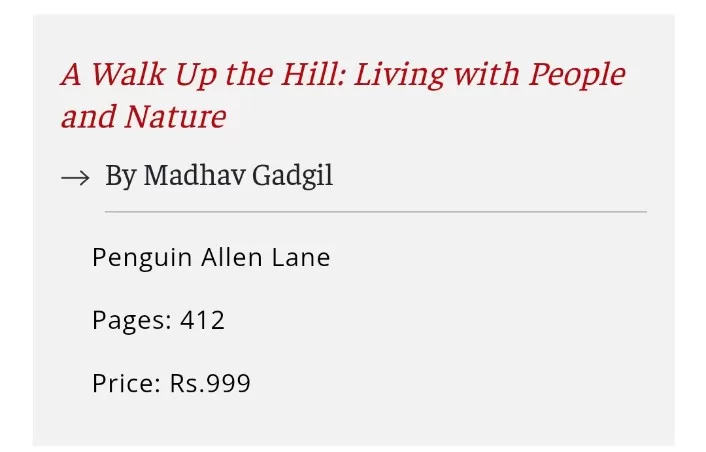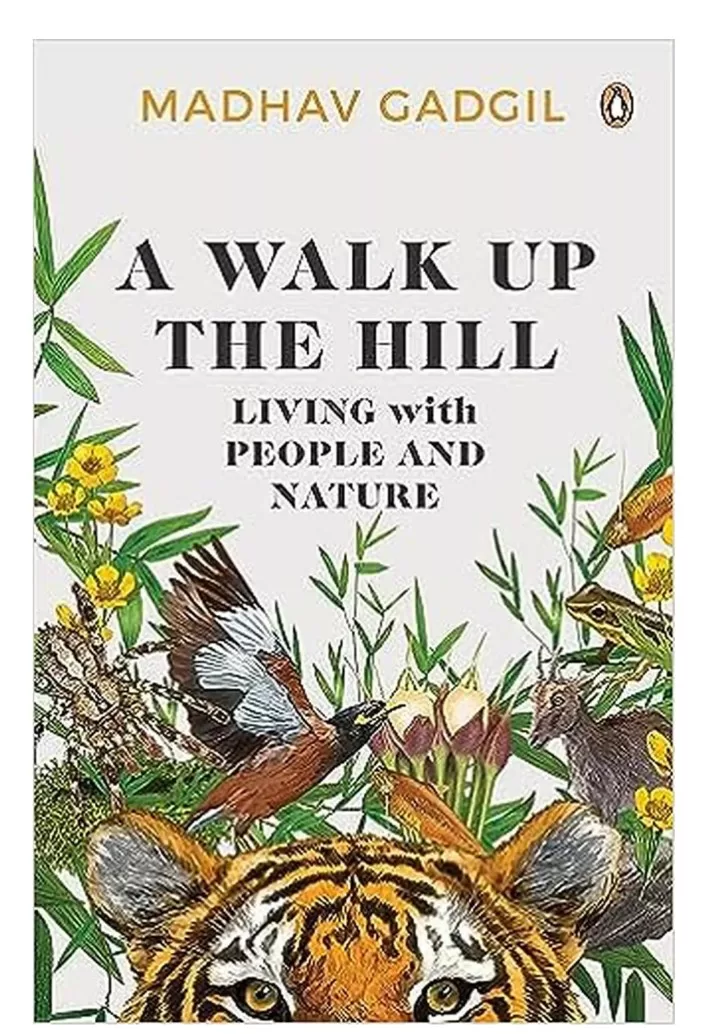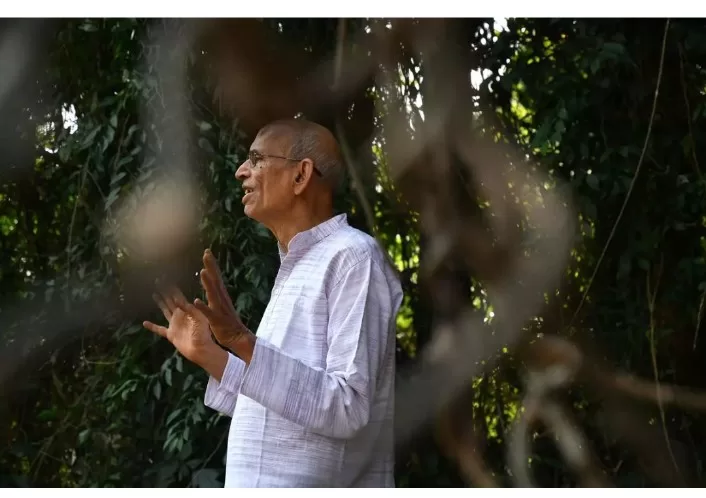In a heartfelt memoir, acclaimed environmentalist Madhav Gadgil reflects on the pivotal moments that shaped his life and unwavering commitment to conservation. “A Walk Up the Hill: Living with People and Nature,” penned by Gadgil, not only traces his personal journey but also addresses the critical environmental issues facing India’s Western Ghats.

The memoir opens with a poignant incident from Gadgil’s youth when he and a friend, while trekking through the Yavateshwar Hills in Maharashtra, faced caste-based discrimination while seeking water from a temple. This encounter with injustice left a lasting impression on him, cementing his belief that caste discrimination was an abomination.
Gadgil’s deep-rooted connection with environmental conservation emerged when he witnessed his father’s distress over the Koyna hydroelectric project, which posed a significant threat to the Western Ghats’ forests and livelihoods. This event marked his early awareness of the complex interplay between development and environmental concerns.

As a student, Gadgil delved into various fields, including mathematics, statistics, and evolutionary biology, but his passion for nature and a desire to make a positive impact on Indian society led him down a different path. He recognized the need to work closely with grassroots communities, putting their welfare at the forefront of his conservation efforts.
His exploration of the Western Ghats exposed him to the degradation of once-lush hills that had sustained tropical rainforests. However, amidst the erosion, Gadgil discovered pockets of vibrant forests nurtured by local communities. This revelation challenged the prevailing notion that sacred groves existed solely due to superstition, prompting Gadgil to dig deeper for scientific evidence to support their conservation.
Gadgil’s interactions with these communities shed light on the importance of these groves, which not only protected water sources but also harbored medicinal plants and served as havens for wildlife. However, this newfound understanding did not come without its share of challenges. When the Forest Department marked trees in a sacred grove for felling, Gadgil realized the conflict between conservation and government policies. He began to advocate for alternative approaches that involved working with rather than against India’s common people.
His memoir also criticizes the Wildlife (Protection) Act of 1972, which, he argues, criminalized traditional hunting practices that were essential for the livelihoods of hunting-gathering communities. The Act’s urban conservationist approach overlooked the needs of these communities and branded them as criminals. Gadgil advocates for a more inclusive and equitable approach to conservation.
One of Gadgil’s significant contributions to conservation was the formulation of the Biological Diversity Act, 2002, which introduced “People’s Biodiversity Registers.” These registers aimed to promote the sustainable use of biological diversity, preserve habitats, and empower local communities.
Throughout his memoir, Gadgil acknowledges the individuals who influenced his journey, including social activist Bismarck Dias, anthropologist Irawati Karve, ornithologist Salim Ali, and Lal Shyam Maharaj, who inspired the Jungle Bachao-Manav Bachao movement in Maharashtra.
Despite the environmental challenges faced by India, Gadgil remains optimistic about the future. He believes that the younger generation, born in a free, democratic India that upholds values of social justice, equity, and human dignity, will lead the way toward a more sustainable and equitable future.
Madhav Gadgil’s memoir serves as a testament to his dedication to environmental conservation, rooted in a profound respect for both nature and the people who inhabit it.







